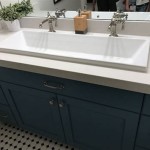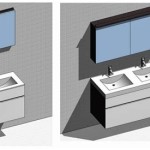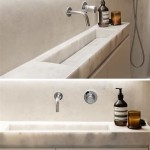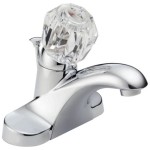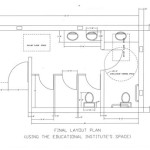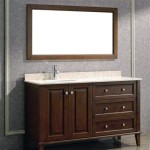Essential Aspects of Rough-In Plumbing for Bathroom Remodel
When it comes to bathroom remodeling, rough-in plumbing is the critical foundation for ensuring a functional and efficient bathroom. It involves installing the pipes, drains, and fixtures that will carry water and waste throughout the space. To ensure a successful bathroom remodel, paying close attention to the essential aspects of rough-in plumbing is paramount.
Let's dive into the crucial considerations for rough-in plumbing during a bathroom renovation:
1. Fixture Placement and Dimensions: Rough-in plumbing begins with determining the precise location and dimensions of all fixtures, including sinks, toilets, showers, and bathtubs. This step sets the foundation for a well-planned bathroom layout and ensures that all plumbing connections align seamlessly with the intended fixture placements.
2. Pipe Sizing and Materials: The size and material of pipes used in rough-in plumbing play a significant role in determining the efficiency and durability of the system. Choosing the appropriate pipe size ensures proper water flow and prevents clogs, while selecting durable materials like copper or PEX ensures longevity and resistance to corrosion.
3. Drain Placement and Slope: Drains are essential for removing waste from the bathroom. Proper drain placement ensures efficient drainage and prevents water buildup, while the slope of drain pipes allows gravity to aid in the flow of water, preventing clogs and unpleasant odors.
4. Water Supply Lines: Rough-in plumbing also involves installing water supply lines to provide water to fixtures. These lines should be properly sized to ensure adequate water flow and pressure for all fixtures, and they should be installed according to code to prevent leaks and ensure safety.
5. Venting: Venting is an integral part of rough-in plumbing that allows air to enter the drain system. Proper venting prevents the formation of negative pressure in the system, which can lead to gurgling noises, slow drainage, and even sewage backups.
6. Code Compliance: Ensuring that rough-in plumbing complies with local building codes is crucial. Codes vary by region and are designed to maintain safety and quality standards. Following codes helps avoid potential issues during inspections and ensures the bathroom meets legal requirements.
7. Professional Installation: Rough-in plumbing is a complex task that requires specialized knowledge and skills. Hiring a licensed and experienced plumber is essential to ensure the accuracy and reliability of the installation. Proper installation prevents leaks, damage, and potential health hazards, ensuring the longevity and functionality of the bathroom remodel.

Renovate Your Bathroom In 6 Steps Expert Plumbing And Gas Services

Plumbing Design For Residential House Shower Bathroom Diagram

Proper Ways To Relocate Plumbing When Renovating A Bathroom Kevin Szabo Jr Services Local Plumber Tinley Park Il

Bathroom Remodel Live Plumbing Rough In Diy Bathroomremodel

Plumbing Diagram Bathroom Shower

Rough In Plumbing Bathroom Dimensions Jim The Home Guy

A Guide On Doing Rough In Bathroom Plumbing Advanced Gas

Plumbing Rough In For Your New Home Builder Tips Quality Armchair Blog Build Renovate Repair Own Save Money As An Owner

Pin On Bathroom Remodeling

Diy Bathroom Remodel How We Designed And Built 2 New Bathrooms
